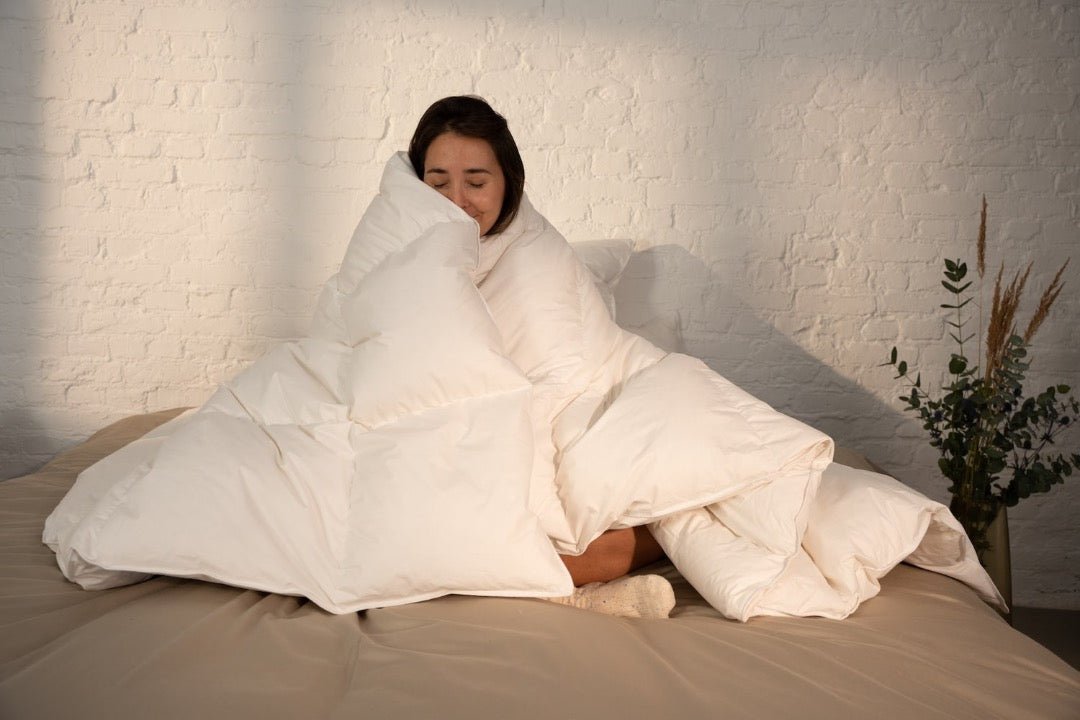Sleep is essential for the regeneration of body and mind. But what happens when sleep is disrupted? Sleep disorders can have a significant impact on our lives and lead to a variety of health problems. In this article we will look at the different types of sleep disorders (sleep disorders), their causes, symptoms and treatment options.
What are the most common types of sleep disorders?
There are different types of sleep disorders. The most common are insomnia (insomnia), sleep apnea (pauses in breathing during sleep), restless legs syndrome (restless legs), narcolepsy (excessive daytime sleepiness), and parasomnias (abnormal behavior during sleep, such as sleepwalking). Each of these disorders can impact your sleep quality and daily life.
What are the most common causes of sleep disorders?
The causes of sleep disorders can be diverse and range from physical illnesses such as respiratory diseases or neurological disorders to psychological problems such as stress and anxiety. Also certain lifestyle habits, such as: E.g. irregular sleep times, excessive caffeine or alcohol consumption, can cause sleep disorders.
How can I tell if I have a sleep disorder?
Diagnosis of a sleep disorder is usually made through a combination of self-observation, medical history, and specialized sleep studies. If you regularly have trouble falling or staying asleep, are often tired during the day, or notice other unusual symptoms, you should see a doctor.
What symptoms are typical of sleep disorders?
Symptoms of sleep disorders can vary depending on the type of disorder. However, common symptoms include difficulty falling or staying asleep, early awakening, daytime sleepiness, difficulty concentrating, irritability and a feeling of exhaustion despite sufficient sleep.
How do sleep disorders affect my physical and mental health?
Sleep disorders can have a number of negative effects on your health. They can increase the risk of various diseases such as heart disease, diabetes and depression. They can also affect cognitive function, leading to memory problems, difficulty concentrating, and reduced mental performance.
What treatment options are there for sleep disorders?
Treatment for sleep disorders depends on the underlying cause. It may include medication, behavioral therapy, changes in sleep habits, or a combination of these approaches. In some cases, specialized treatment such as continuous positive airway pressure therapy (CPAP) for sleep apnea may also be necessary.
How can I improve my sleep hygiene to prevent sleep disorders?
Good sleep hygiene includes a set of practices and habits that help you get good sleep on a regular basis. These include regular sleep times, a quiet and dark sleeping environment, avoiding caffeine and alcohol before bed, regular physical exercise and relaxation exercises.
Can medications cause or worsen sleep disorders?
Yes, certain medications can cause or worsen sleep problems. These include some antidepressants, blood pressure medications, stimulants and steroids. If you think your medications may be affecting your sleep problems, talk to your doctor.
What role does nutrition play in sleep disorders?
Your diet can affect your sleep. Eating heavy, high-fat foods just before bed can cause discomfort and trouble sleeping. Caffeine and alcohol can also disrupt your sleep. A balanced diet and regular, moderate meals can help promote healthy sleep.
Should I see a doctor if I suspect I have a sleep disorder?
Yes, if you have regular sleep problems that are affecting your everyday life, you should see a doctor. Sleep disorders are treatable, and early treatment can help prevent long-term health problems.
Tips for better sleep: How to effectively overcome sleep disorders
The quality of our sleep has a significant impact on our quality of life. Good sleep is crucial for our physical and mental health. However, many people suffer from sleep disorders that negatively affect their everyday lives. For this reason, today we want to share some helpful sleep tips and suggestions to help with sleep disorders.
- Setting up an optimal sleeping space
The environment in which we sleep plays an important role in the quality of sleep. A clean, well-ventilated room with a comfortable temperature and minimal noise promotes better sleep. Create a quiet, dark environment and invest in a comfortable mattress and pillows to improve comfort.
- Maintaining a regular sleep schedule
It is important to maintain a regular sleep schedule. Try to go to bed and get up at the same time every day. This helps regulate your natural sleep-wake cycle and makes it easier to fall asleep and wake up.
- Avoiding screens before bed
Blue light emitted by devices such as smartphones, tablets and computers can disrupt our natural sleep-wake cycle. Therefore, it's a good idea to limit screen activities at least an hour before bed.
- Regular physical activity
Regular exercise can help you sleep better. It promotes the production of melatonin, the hormone that controls our sleep-wake cycle. However, try not to do intense workouts too close to bedtime as they can wake you up.
- Nutrition
What we eat and drink has a direct impact on our sleep. Avoid heavy meals, alcohol, caffeine and nicotine close to bedtime as these substances can disrupt sleep.
- Relaxation techniques
Stress and worry can cause sleep problems. Practices like yoga, meditation, deep breathing, and mindfulness can help reduce stress and promote a calmer, more relaxed state that makes it easier to fall asleep.
- Seek professional support
If your sleep problems persist after using these tips, it may be helpful to seek medical help. A doctor or therapist can identify specific causes of sleep disorders and recommend targeted treatment options.
Every person is unique and so are their sleep needs and habits. What works for one person may not necessarily work for another. It's therefore worth trying out different strategies and seeing what works best for you.
Sleep disorders can have a significant impact on life, but in most cases they are treatable. If you think you have a sleep disorder, seek professional help. A good night's sleep is important for your physical and mental health and your overall well-being. Invest in your sleep - your body and mind will thank you.
























Leave a comment